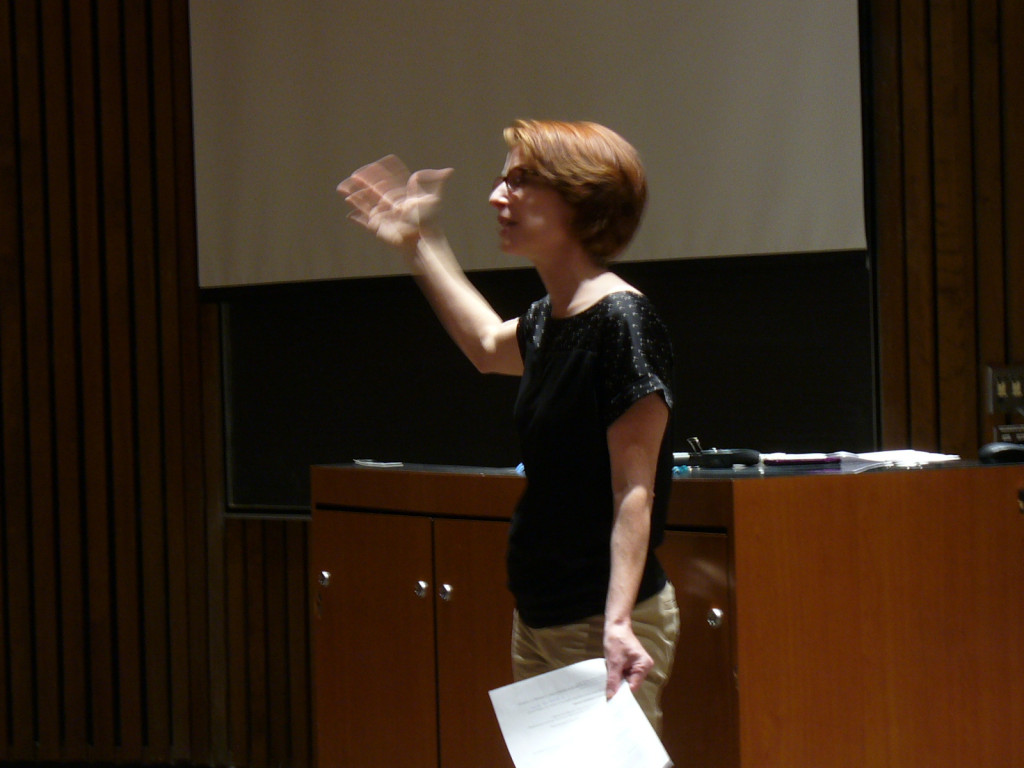The picture above is of Rusty, the very naughty red panda, who escaped fron the National Zoo and went for a walk-about in D.C. At the end of my second post we saw him strolling down a sidewalk. He been compared with Edward Snowden. His presence here in this post is due in part to his nonchalant disregard of what he was supposed to do.
Red pandas also provide problems for some theories of concepts. That provides a justification of sort for including Rusty. Red pandas come in with the last section of this post.
Things have not gone entirely well since Rusty’s return. He has become a father of three, but his mate died of encephalitis and the cubs are being raised by zoo workers. Perhaps fortunately, red pandas do not seem to go in for sentimentality.
———————————–
A central task for the earlier part of this post is to describe the similarity accounts of concepts and representations in the history of philosophy. We’ll see them in Aristotle, Aquinas and Hume. One important effect of the reading given here of the historical philosophers is that their arguments look much better than when they are read as adopting the modern conception of representation.
————————————
I have wondered about the extent to which the Roman Catholic childhood I shared with so many had the effect of shaping our minds in a way very congenial to a medieval world view. Of course, all over the world people believe in interventions from extraordinary deities and devils, but our unnatural gang seemed very particular and vividly present. Thus I was advised as a girl to carry holy water in a bottle in a purse. That way, if one was approached by the devil, one could sprinkle holy water on him (nb) and he’d disappear. And we knew that was true because Sister had a student who was being followed by a strange man down the street in New York City. And suddenly she knew he was the devil. So she whipped out her bottle of holy water and recited some prayers in Latin while she shook the water at him. And indeed he did hurry away.
But more than the interventions of critters not entirely governed by the laws of physics was the fact that we were taught a psychology and something like a physics pretty straight from Aquinas, at least in later high school and the two years of Catholic college I manage to survive before I went to Berkeley, just as the protests of the 60’s were about to start.
And so we memorized accounts of perception which have accidental forms (repeatable sensory characteristics) getting realized in our sensory system and essences, such as those of cat, realized in our intellects. This did not mean that if one got knocked on the head, a cat might leap out. Rather the cat essence was realized in our minds in a way quite different from the way it is realized in ordinary matter. We even dealt with quite modern questions, such as the binding of sensory characteristics. The account of the perception of wax in Descartes second meditation was a very familiar story for me.
I’ve never really thought of my education as providing much in the way of practical goods, but I should at least have been dismayed to find I knew a great deal about what had suddenly seemed utterly useless; namely, Aquinas’ philosophy. I had spent a two-year course reading the Summa Theologica, and it was completely unclear how that knowledge would ever be put to further use.
For decades I didn’t think about scholastic philosophy. But then in 1999 I did a literature search on “representation” in science journals, and suddenly there was the Thomistic (and Aristotelian) conception again. In recent philosophy, X represents Y just in case X is about Y. But for Aquinas, my experience of a large red triangle is not about the red or the figure or both. Rather, it realizes these qualities, though in a way appropriate to their realization in sensory matter, as opposed to ordinary matter. And for those studying knowledge representation, for example, what was in the head was not about some kind of knowledge. Rather, the study of knowledge representation is the studying the how knowledge is in the head, to put it roughly. And if I mirror your pain, what I get is not something about your pain; rather, I realize pain at least to some extent like yours.
Furthermore, the tradition started by Aristotle and picked up by Aquinas was not short lived. It is in Descartes and Locke to some extent and most definitely in Hume. One’s idea of red represents one’s impression of red, Hume claims, and they are exactly alike except for force and vivacity. One’s idea of a triangle is not about a triangular shape; it in fact is a triangular shape. Hume tightly links resemblance and representation:
The full examination of this question is the subject of the present treatise; and, therefore, we shall here content ourselves with establishing one general proposition, That all our simple ideas in their first appearance, are derived from simple impressions, which are correspondent to them, and which they exactly represent. (Treatise, Bk. 1 Pt. 1 Sec. 1 Para. 7/12 p. 4.)
This view of the relation between impressions and ideas is no early flourish. We find it in later sections, such as,
All the perceptions of the mind are of two kinds, viz. impressions and ideas, which differ from each other only in their different degrees of force and vivacity. Our ideas are copied from our impressions, and represent them in all their parts. (Treatise, Bk. 1 Pt. 3 Sec. 7 Para. 5/8 p. 96; stress mine.)
The idea that the mind in fact samples the world in perception or takes samples from it has in fact a long history, beginning at least with Aristotle. Thus Aristotle says in De Anima:
By a ‘sense’ is meant what has the power of receiving into itself the sensible forms of things without the matter … it is indifferent what in each case the substance is; what alone matters is what quality it has, e.g., in what ratio its constituents are combined.
And an example of his is of wax receiving the shape of a seal, but not its material. Not only does the passage contain the idea that the organ gets the sensible form realized in it, but also it can be seen as at least hinting at an answer to the “no internal sample” problem. That is, sensory qualities can be thought of quantitatively in terms of ratios and the senses get not the actual constituents of the quality in the right ratio but rather it realizes the ratio.
Aquinas has what he presents, in his discussion of De Anima, as a similar idea; in perception, senses receive a sensible species. A sensible form is realized in our sensory system in a very different way from the way it is realized in the objects themselves; the ways differ in that one is a matter of its being in the object and the other its being in the senses.
Aquinas follows Aristotle’s account and its implications for knowledge:
Both of them reason in terms of actuality and potentiality … Both ground all naturally attainable human knowledge on external sensible things, instead of on sensations, ideas, or language. Both look upon cognition as a way of being in which percipient and thing perceived, knower and thing known, are one and the same in the actuality of the cognition. (Owens, 1993)
Though each is driven by an account of caused change as the reception of form, both also appear to take their views as providing a plausible account of perception.
I think it is fair to say that contemporary (to us) analytic philosophy has lost this concept. “Representation” in the sense of “mental representation” most philosophers use burst into flower in 1975, according to the Philosopher’s Index. But the transition to a notion of “aboutness” comes earlier with Chisholm’s questionable reading of Brentano.
Much of the discussion of the historical figures that we will look at refers to Brentano’s conception of intentionality. His explanation of intentionality is generally taken to occur in the following famous statement:
Every mental phenomenon is characterized by what the Scholastics of the Middle Ages called the intentional (or mental) inexistence of an object, and what we might call, though not wholly unambiguously, reference to a content, direction toward an object (which is not to be understood here as meaning a thing), or immanent objectivity. Every mental phenomenon includes something as object within itself.. (Brentano, 1973)
The Scholastic terminology originates with Aquinas, and it refers to the realization in a subject of the Aristotelian representation. Given Brentano is concerned with the Scholastic view about inexistence, the passage has to be about Aristotelian representations. However, so interpreted, the passage is not completely consistent with other things he said. He also later provided another interpretation (Huemer, 2009), which appears to allow that an intentional object might be an object external to the mind. So understood, intentionality is not Scholastic, but is rather contemporary Brentano is routinely interpreted in terms of the latter. As Tuomo Aho notes (Bakker & Thijssen, 2007):
In present-day elementary expositions, the typical definition of intentionality has been, and still is, ‘directedness to something.’ This formula has become so familiar that it is hardly even noticed how the direction metaphor is quite different from the original in-being metaphor. (203)
Once we see Hume as using a similarity conception of representation, many of his arguments can seem much stronger. One of Hume’s arguments that commentators have often disliked has been his argument for the impossibility of literally abstract ideas. The argument, influenced by Berkeley to whom Hume refers, has struck many commentators as close to incompetent. Hume claims, for example, that an abstract idea of a triangle would impossibly have to represent a shape apart from any size. Jonathan Dancy, surely voicing the opinions of many readers, notes recently that friends of abstraction do not really suppose that size can exist apart from shape and he suggests that it may be better to suppose that Berkeley did not really think abstraction involves such a mistake (Dancy 2002). Presumably the point would transfer immediately to Hume’s corresponding arguments. Similarly, Phillip Cummins remarks a number of times that Hume’s argument against abstract ideas ignores at several points the possible supposition that there are “indeterminate qualities which can be represented by ideas” (Cummins 1996).
Hume’s arguments are not that bad. Indeed, on the interpretation of Hume being developed here, friends of abstraction do make just the mistake Dancy thinks they do not, unless they have a very different conception of representation. If representation involves instantiation and one can represent shape alone, it must be possible to instantiate it alone. Equally, Hume is not ignoring the possibility Cummins locates. Rather, given the theory of representation he is operating with, the supposition that we can represent indeterminate qualities would require that such indeterminate qualities could be found alone in the world, and Hume pointedly excludes this obviously false alternative.
Another case in which taking our contemporary notion of representation to a historical philosopher comes with Pasnau maintains that Aquinas commits the “content fallacy,” which consists in conflating features about the content of a thought with intrinsic features of a thought (Pasnau 1998). For Pasnau, a good example of the content fallacy occurs in an inference from “John is thinking about a red sports car” to “John’s thought is red.” One warning sign about labeling such an argument as fallacious is that a similar argument about an example or sample is not fallacious at all. “John has an example of a red sports car” appears indeed to imply “John has an example which is red (in part).” Thus, if we are thinking of thoughts as involving something like examples, as indeed we have been, then the argument looks at least less fallacious.
The situation, as Pasnau notes, is complicated with Aquinas in part because an accidental form realized in one’s sensory system is not realized in the same way that it is realized in ordinary objects such as apples. However, once the ontology of modern science casts doubt on forms, theorists using Aristotelian representations may indeed think that thoughts or ideas literally instantiate sensory qualities. For Hume, as we will see, ideas literally have color, size and shape.
Given this, we can read backwards and use Hume to address one of the issues Pasnau raises; namely, Aquinas’s insistence on the fact that the senses are material means the senses cannot cognize universals. Pasnau takes this view as the conclusion of a fallacious inference from the features of sensory ideas to the features of sensory contents. That is, Aquinas seems to be inferring from the individual nature of sensory states to the individual contents of sensory ideas, which Pasnau thinks is fallacious. Hume, however, has an interesting explanation of why the inference is right, and it is plausibly close to what Aquinas had in mind. To perceive a universal is to perceive it without the individuating features of any one material realization. An idea of a triangle has a shape, for Hume, but if it is genuinely abstract, the shape cannot have all its angles equal. Neither, however, can it have unequal angles. In short, it is an impossible figure. Correspondingly, then, for Aquinas any form realized in our sensory matter will have such “individuating notes.” The sensible species will have, for example, the intentional (in Aristotle’s sense) correlates of size and shape. The result is that it will be the idea of a kind of particular triangle, as opposed to a genuinely universal idea of triangle. A form cannot be both realized in matter and lack individuating notes.
Thus Aquinas’s version of the argument, explicit in Hume, is necessitated by his view of the relation between form and matter. A sensible form involves a form realized in matter, though in the sensory system it is realized in a way different from how it is realized in, say, apple skin. Matter always limits form; it particularizes it. That is why there can be many different red things and many different cats. Creatures lacking matter, such as angels, have each to have different substantial forms. Consequently, any realization of a form that is not restricted, limited and particular cannot be a realization in matter. Since these principles are so fundamental to Aquinas’ philosophy, it seems reasonable to think that Pasnau was distracted by the modern terminology and concepts – particularly “content” – from taking the claims about Aristotelian representations literally. The content and the intrinsic features of an Aristotelian representation are not dissociated in the way a word’s inscribed shape and its content are.
Concepts and causation
One thing that one notices about Aquinas and Hume is that their discussions about sensory experience and cognition are heavy with how the experiences have effects on us; that is, how they work in the expansion of our thoughts and the production of our actions. An account of sensory experience will yield accounts of memory, imagination and conceptualization, for example.
In the second post I claimed that there is a serious problem getting any causal role for our contemporary intentional content. And theorists have largely concentrated on getting the truth-conditions of causal ascriptions right. But this contemporary exclusion of the examination of the causal is not present in the historical philosophers.
There are a number of other interesting features of contemporary accounts of concepts. I will mention two of them. First of all, something like a prototype theory of concepts has been developed to explain how we use concepts, or how we manage to identify frogs and pine trees, for example. But there is a large problem with the idea that we can reliably use that prototypes in identifying kinds of objects.
Prototype theories take concept application to appeal to a similarity to paradigms or prototypical instances of a concept. However, discussions of the theory, along with laboratory investigations of it, often focus on lists of features. A central trait of the theory is tha it yields a notion of a typical instance of the concept. The fact that there are typical instances appears to be a feature of the concept, since lists of typical instances meet considerable agreement among users of the concept. (This is so at least as long as we hold the environment the same.) As theorists have worked to explain how typicality is generated, they have developed different versions of what the list of features look like; for example, whether it is structured into a schema or not.
But a very under-discussed problem is that our world is full of fakes, phonies and the fabricated and the faux (Jacobson, 2010). For example, as the opening picture may show, red pandas look a lot like raccoons. In fact, both they and giant pandas were once classified as raccoons. (I remember a class of mine howling in protest at the idea that pandas are raccoons.) Red pandas were reclassified as bears on the basis of the bone structure in their forepaws, I believe. This has roughly nothing to do with the prototype theory.
Rusty at home
The vulnerability of prototype theory to the problem of fakes may make us aware of another problem. Many of us – surely all of us in cultures that are not isolated from all others – have concepts of things of which we have no direct sensory experience. We may learn of pearls and polar bears from fake pearls or picture books.
This fact – that we have concepts instances of which we could but haven’t experienced – has some implications for various theories. For example, Prinz’s amendment of Dretske’s theory, which we saw in the second post, appears to suppose that we do have experiences instances of concepts when we learn the concepts. But, more importantly, the presence of fakes raises a very serious question of what it is to have a concept. It cannot be simply that we correctly apply the concept. Even when the environment is very favorable, red pandas and cubic zirconia may take us in.
I am going to leave the question of what makes it the case that we have a concept to readers. My own preference would be for a social account, which provides another reason to think that mentality is not entirely internal. But I do not have the space to argue that here.
References
Bakker, P. J. J. M., & Thijssen, J. M. M. H. (2007). Mind, cognition and representation : the tradition of commentaries on Aristotle’s De anima. Aldershot, England ; Burlington, VT: Ashgate Pub.
Brentano, F. C. (1973). Psychology from an empirical standpoint (A. C. Rancurello, O. Kraus & L. L. McAlister, Trans.). London, New York: Routledge and Kegan Paul; Humanities Press.
Dancy, J. (2002). Horse sense. Times Literary Supplement 5174(28)
Huemer, W. (2009). Franz Brentano. The Stanford Encyclopedia of Philosophy (Fall 2009 Edition), from https://plato.stanford.edu/archives/fall2009/entries/brentano
Jacobson, A. J. (2010). The faux, fake, forged, false, fabricated, and phony: Problems for the independence of similarity-based theories of concepts. Behavioral and Brain Sciences, 33(2-3), 215-215. doi: doi:10.1017/S0140525X10000385
Owens, J. (1993). Aristotle and Aquinas. In Norman Kretzman & E. Stump (Eds.), The Cambridge Companion to Aquinas. Cambridge, UK: University of Cambridge.
Pasnau, R. (1998). Aquinas and the Content Fallacy. Modern Schoolman: A Quarterly Journal of Philosophy, 75(4), 293-314.








